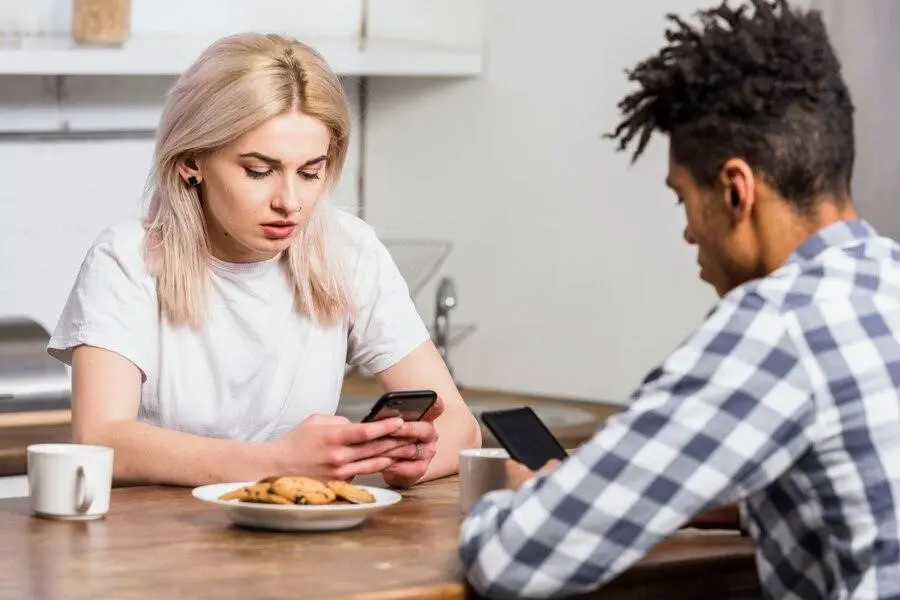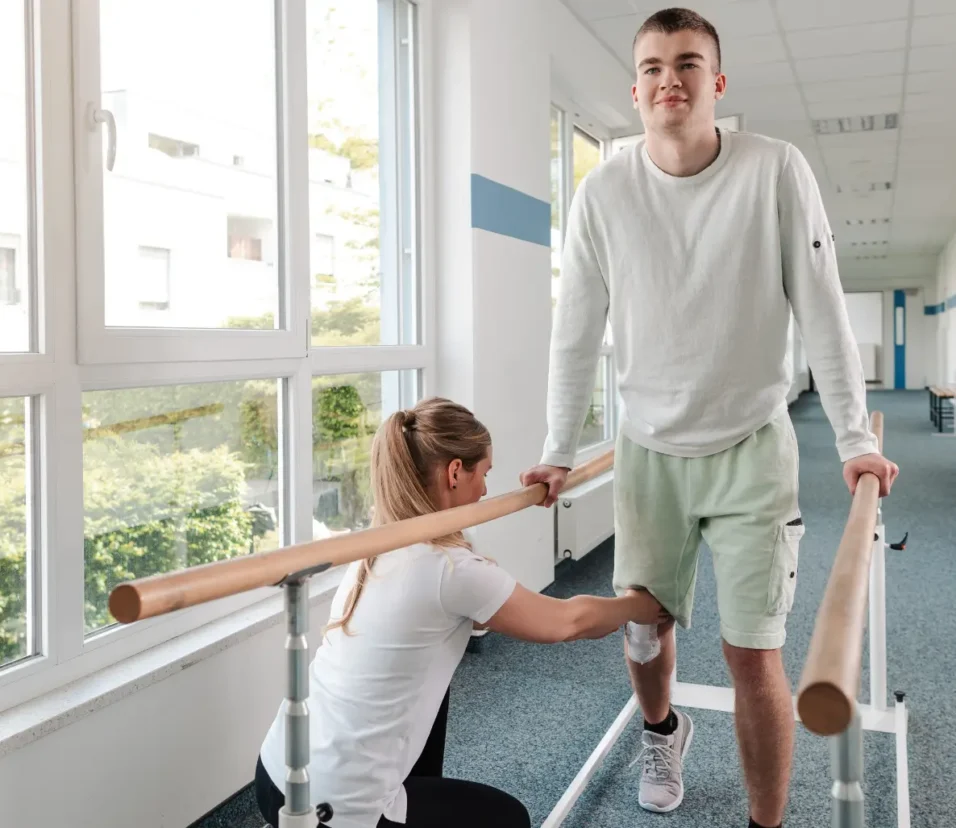Social Anxiety Dating: Understanding and Supporting Your Partner
Social Anxiety Dating can pose unique challenges for both partners involved. Social anxiety disorder (SAD) affects how individuals interact with others, often leading to overwhelming feelings of self-consciousness and fear of judgment in social situations. When one partner in a relationship experiences social anxiety, it can impact various aspects of dating, from initial interactions to establishing intimacy.
Research indicates that social anxiety is more prevalent than commonly believed, with approximately 15 million American adults affected each year, according to the Anxiety and Depression Association of America (ADAA).
Studies also suggest that social anxiety can significantly affect romantic relationships, leading to communication difficulties, avoidance of social activities, and decreased relationship satisfaction for both partners.
Why am I so Anxious When Dating?

“Why am I so Anxious When Dating?” Understanding the roots of anxiety in dating situations is crucial for both partners involved. For individuals with social anxiety, the pressure of meeting new people, navigating social cues, and fear of judgment can trigger overwhelming feelings of apprehension and distress.
Past experiences of rejection or negative social interactions may contribute to heightened anxiety levels during dating scenarios. Additionally, unrealistic expectations, societal pressures, and fear of vulnerability can exacerbate feelings of unease. It’s essential to recognize that social anxiety is not a choice or a character flaw but rather a complex interplay of genetic, environmental, and psychological factors.
By acknowledging the underlying reasons for anxiety in dating contexts, individuals and their partners can work together to cultivate understanding, patience, and support in overcoming these challenges.
How Do People with Social Anxiety Flirt?
Flirting can be an intimidating prospect for individuals with social anxiety, as it involves initiating and navigating social interactions in potentially vulnerable situations. Despite the challenges, many people with social anxiety find ways to express interest and connect with others romantically.
Some may employ subtle gestures or nonverbal cues to convey their attraction, such as maintaining eye contact, smiling, or mirroring the body language of their romantic interest. Others may utilize technology as a buffer, relying on text messages or social media platforms to initiate conversations and express their feelings.
Additionally, humor and self-deprecation can serve as coping mechanisms, allowing individuals to alleviate tension and establish rapport in flirtatious exchanges. While the strategies for flirting may vary depending on the individual and their comfort level, the underlying goal remains the same—to establish a meaningful connection with a potential romantic partner.
- Utilizing humor and playful banter to establish rapport.
- Engaging in active listening and asking thoughtful questions to show interest.
- Initiating conversations through text messages or social media platforms.
- Employing subtle gestures and nonverbal cues, such as maintaining eye contact and smiling.
- Using self-deprecating humor as a way to alleviate tension and create a sense of authenticity.
How Social Anxiety Affects Dating and Intimate Relationships?

Social anxiety can profoundly impact dating and intimate relationships, influencing various aspects of interaction and connection between partners. Individuals with social anxiety may experience heightened self-consciousness and fear of negative evaluation during romantic encounters, leading to avoidance of social activities, reluctance to initiate contact or difficulty in expressing affection.
Communication barriers often arise as a result of apprehension about sharing personal thoughts and feelings, which can hinder emotional intimacy and vulnerability within the relationship. Additionally, social anxiety may manifest as excessive reassurance-seeking behaviors or overanalysis of social interactions, creating tension and misunderstandings between partners.
Intimate moments, such as physical intimacy or sharing personal space, may evoke heightened anxiety due to concerns about performance, body image, or fear of judgment. Over time, untreated social anxiety can strain the relationship, contributing to feelings of frustration, isolation, and diminished relationship satisfaction for both partners.
Understanding the ways in which social anxiety influences dating and intimacy is crucial for fostering empathy, patience, and effective communication within the relationship. Seeking professional support and implementing coping strategies can help individuals with social anxiety and their partners navigate these challenges and cultivate a fulfilling and supportive romantic bond.
Signs You’re Dating Someone with Social Anxiety
Dating someone with social anxiety can present unique challenges, but understanding the signs can help foster empathy and support within the relationship. Individuals with social anxiety often exhibit certain behaviors and tendencies that may indicate their struggle with this condition.
These signs can vary in intensity and manifestation, but they provide valuable insights into their experiences and needs within the relationship.
- Avoidance of social situations or events that involve large gatherings or unfamiliar people.
- Reluctance to initiate or participate in conversations, especially in group settings.
- Excessive self-consciousness and fear of judgment lead to hesitancy in expressing opinions or feelings.
- Overthinking and analyzing social interactions, including text messages or social media interactions.
- Physical symptoms of anxiety, such as sweating, trembling, or rapid heartbeat, particularly in social settings.
- Difficulty in making eye contact or maintaining focus during conversations.
- Seeking reassurance or validation from their partner about social situations or their behavior.
- Preference for routine and familiarity, often avoiding spontaneity or new experiences.
- Limited social circle or few close relationships outside of the romantic partnership.
- Heightened sensitivity to criticism or perceived rejection, sometimes leading to withdrawal or defensive behavior.
Tips for Finding Love in Social Anxiety Dating

Navigating the dating scene can be daunting, especially for individuals with social anxiety. However, with patience, understanding, and the right strategies, finding love is entirely possible. Here are some tips tailored to those facing the challenges of social anxiety dating:
1. Prioritize Self-Care
Taking care of yourself emotionally, mentally, and physically is essential for building confidence and resilience in dating. Engage in activities that bring you joy and relaxation, practice mindfulness and self-compassion, and seek professional support if needed to manage anxiety symptoms effectively.
2. Expand Your Comfort Zone Gradually
While stepping outside of your comfort zone may feel overwhelming, gradual exposure to social situations can help desensitize anxiety triggers over time. Start with small, manageable steps, such as attending low-pressure social gatherings or joining interest-based groups where you feel supported and understood.
3. Communicate Openly with Your Partner
Effective communication is key to fostering trust and understanding in any relationship, especially when one partner experiences social anxiety. Be honest with your partner about your feelings, triggers, and needs, and encourage open dialogue to address any concerns or misunderstandings that may arise.
4. Set Realistic Expectations
It’s essential to approach dating with realistic expectations and an understanding that not every interaction will lead to a romantic connection. Focus on building meaningful connections and enjoying the journey rather than fixating on outcomes or perceived failures.
5. Practice Self-Compassion and Acceptance
Social anxiety can lead to harsh self-criticism and negative self-talk, but practicing self-compassion and acceptance can help counteract these tendencies. Be kind to yourself, acknowledge your strengths and accomplishments, and embrace your imperfections as part of what makes you unique.
6. Seek Support from Understanding Friends and Family
Surround yourself with a supportive network of friends and family who understand your struggles with social anxiety and can offer encouragement and reassurance. Having a strong support system can provide a sense of belonging and validation as you navigate the ups and downs of dating.
7. Educate Your Partner About Social Anxiety
Educating your partner about social anxiety can help them better understand your experiences and provide the support you need in moments of distress. Share resources, articles, or personal insights to help them gain insight into the challenges you face and how they can best support you.
8. Consider Professional Help
If social anxiety significantly impacts your dating life and overall well-being, seeking professional help from a therapist or counselor can be beneficial. Therapy can provide coping strategies, tools for managing anxiety symptoms, and a safe space to explore and address underlying issues contributing to social anxiety.
How Can CBT Help You Manage Social Anxiety Symptoms?
Cognitive-behavioral therapy (CBT) is a highly effective approach for managing social anxiety symptoms and improving overall quality of life. In CBT, individuals learn to identify and challenge negative thought patterns and beliefs that contribute to anxiety, replacing them with more realistic and adaptive ways of thinking.
Through gradual exposure to feared social situations, individuals can desensitize themselves to anxiety triggers and develop coping strategies to manage distressing symptoms. CBT also emphasizes behavioral techniques such as relaxation training, assertiveness training, and social skills development to enhance confidence and social functioning.
By addressing both cognitive and behavioral aspects of social anxiety, CBT equips individuals with practical tools and strategies to overcome their fears, build self-esteem, and thrive in social interactions.
The Bottom Line
Social anxiety can undoubtedly present hurdles in the realm of dating, but it doesn’t have to be an insurmountable barrier. By recognizing the signs of social anxiety in oneself or a partner, individuals can approach dating with empathy, patience, and understanding. Prioritizing self-care, effective communication, and seeking support from loved ones are essential components of navigating social anxiety dating successfully.
Remember, while social anxiety may add complexity to the dating experience, it doesn’t define one’s ability to find love and happiness. With determination and resilience, individuals can navigate the challenges of social anxiety dating and ultimately find the connection they desire.















